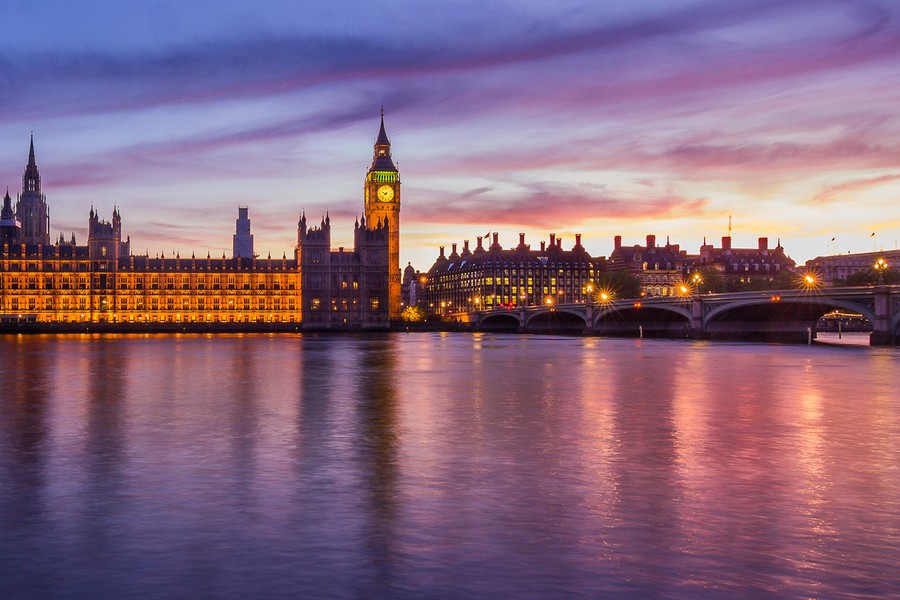Consider crime down by a third, more police on the streets, peace in Northern Ireland, civil partnerships and the minimum wage. Blair’s ultimate nemesis was the war in Iraq, a side-step that saw him ally the UK in an unpopular conflict, siding along with a neo-con President in George Bush. Yet the adept tacking to the right as a whole saw Labour hold power with an impressive mandate.
George Osborne’s summer budget seems played to a similar hand, being a final blow for Labour’s chances of regaining economic credibility. He seemingly pilfered and adapted a host of traditional Labour policy stances, making them his own. His performance at Prime Minister’s Questions earlier this year shone light not only on his having briefed David Cameron for years but on his own status as a tactician. The budget saw him lay claim to Downing Street.
The admiration for the budget certainly underwrote support for Osborne’s vision of the Conservatives in a more centralist role, that of the “workers’ party”. His adoption of a nearer £9 per hour living wage by 2020 stole prior Labour thinking. His cherry picking from Ed Miliband’s previous manifesto addressed such bugbear issues as the anomaly of non-doms and any excess lassitude towards buy-to-let housing’s tax status, itself offset by a hike in the inheritance tax ceiling.
Osborne spoke of a “smooth path” for public spending out to 2020. His performance in shifting towards the centre of UK politics also hastened expectations that he will assume the mantle of Downing Street. David Cameron’s stated departure terms post a Brexit referendum in part reflect the family strains of living in Downing Street itself. With this budget, Osborne has deftly dislodged Boris Johnson as the Heineken conservative, namely being able to reach those parts that others could not.
Labour certainly looks something of a ship of lost souls. The job of being Leader of the Opposition is rightly seen as the toughest role in the Commons.
I have always felt a strain of coulrophobia, or the fear of clowns, over Johnson’s role as Cameron’s jocular savant. His greatest achievement was with the high jinks of the 2012 Olympics at which Osborne himself was booed. Yet Johnson no longer looks the acceptable face of Conservatism. His heady purchase of water cannons for London has seen them mothballed by the Home Office, under the redoubtable Theresa May. His plans for Boris Island as an alternative to Heathrow seem childish, as much a sideline to genuine, practical policy as debate over London’s garden bridge and its likely cost of upkeep. His love of a giggle has become his overriding ticket.
For Johnson, with far too hypothetical a curriculum vitae to his name seeming a touch vainglorious at his public image and its overall practical lack of application are what counts. As Martin Luther said: “Where the battle rages, there the loyalty of the soldier is proved”. Johnson, who is still enmeshed in his glory days as the only popular King’s Scholar at Eton, has yet to really cut his teeth – and he knows it. In a Times interview, he lamely claimed to be a “warrior for the dispossessed”, somewhat too late to have real traction. The delight of Conservative MPs at this budget is indicative of how the Tory leadership will be driven in 2019. For all his unpopularity at times, Osborne has held office and stood his ground over difficult policies. Even the IMF has had to recant its previous criticism of Osborne’s handling of the UK. One is minded to think that Cameron leant to Osborne after his one hour and six minute speech to anoint him with the praise of the benches around him.

The Labour leadership election looks an increasing muddle. The emergence of a credible hard left candidate in Jeremy Corbyn proves that a caucus exists that, despite the carnage of Syriza in Greece, will still vote for unwinnable causes.
It seems as though Blairism’s centrist hold has neglected a host of old school left wing ideas that have seen a resurgence with Corbyn. There certainly seems a distaste for the enrichment of former senior left wing figures such as Blair and Mandelson.
The election of Tim Farron for the Liberals looks a sad afterthought. It is hard to see how his Christian evangelism can mesh with traditional Liberal stances on abortion or even evolution. In that respect, the Liberals look set to continue as also rans in British politics.
This last budget saw a phenomenal tactical reset with the Conservatives tacking left and adapting key principles to wrest the centre ground within the UK. In doing so, George Osborne has positioned himself as a formidable politician and staked a clear claim for the keys to 10 Downing Street.


